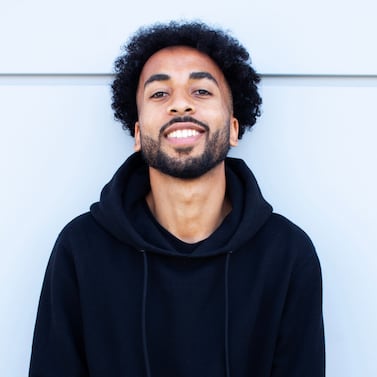
Agenda-setting intelligence, analysis and advice for the global fashion community.

Agenda-setting intelligence, analysis and advice for the global fashion community.

Our Legacy says it’s attracted and rebuffed several approaches from would-be investors as the label—Swedish fashion’s standard-bearer for low-key menswear cool—grew into a global business in recent years. None seemed like the right fit, co-founder Jockum Hallin said, until LVMH Luxury Ventures came calling.
The luxury conglomerate’s venture arm—dedicated to investing in small creative companies—has taken an undisclosed minority stake in the brand, The Business of Fashion can reveal. It’s the fund’s latest investment in a cult menswear label in recent years after it took a minority stake in New York-based streetwear label Aimé Leon Dore in 2022. It has also previously invested in luxury brand Gabriela Hearst, mystery-box start-up Heat and sneaker and streetwear retailer Stadium Goods.
The investment in Our Legacy comes as the brand plots the next phase of development after growing its revenues five-fold over the past three years.
Our Legacy generated sales of €40 million ($43.6 million) in the fiscal year ended 30 June 2024, up from €30 million the year prior and €8 million in 2021, the company told BoF.
ADVERTISEMENT
“It’s not like we needed the investment from a cash-flow perspective — our revenue figures doubled three years in a row and we achieved really healthy profitability,” Hallin said. “It’s more to look to the future as we build the next era.”

Already stocked at around 250 luxury retailers from Dover Street Market to Kith, the brand is now looking to bolster its direct-to-consumer business, eyeing store openings in key cities such as Paris, New York, Los Angeles, Tokyo, Shanghai and Hong Kong, said Richardos Klarén, the brand’s co-founder chief executive. It currently has two stores in Stockholm, one in London and Berlin, and three in South Korea operated by local distribution partner Handsome Corp. A Paris flagship is slated for late 2025. Its largest markets include South Korea, the UK and North America.
Our Legacy’s reputation has grown steadily since its origins in 2005 as a line of graphic T-shirts by Stockholm-based founders Hallin, Cristopher Nying and Richardos Klarén. But growth has soared in recent years, becoming a menswear cult favourite and reaching mainstream consumers via coveted collaborations with streetwear label Stüssy and Emporio Armani.
As luxury consumers steadily gravitated away from streetwear, Our Legacy’s minimalist assortment of denim, soft tailoring and knitwear was a major beneficiary of the “quiet luxury” trend where shoppers valued a more elevated, logo-free style of dressing. Top-selling SKUs today include its $600 Camion leather boot, along with its trompe l’oiel distressed jeans made with its signature “digital denim” print technique. The brand also has a nascent womenswear business, which launched back in 2018.
“I think the customer saw our value at a time when people were shifting away from limited edition sneakers and wanting a more subtle, mature attitude to dressing,” said Hallin.
“Our Legacy is the epitome of the ‘quiet cool’ movement, featuring a unique blend of contemporary minimalism and creative subversion,” Julie Bercovy, chief executive of LVMH Luxury Ventures said in a statement. “I am resolutely convinced by its ability to push the boundaries of men’s fashion beyond its community of fans, while remaining true to its roots and identity.”
The brand doesn’t expect its core product offerings to change following the investment.
“[LVMH Luxury Ventures] don’t want us to change anything. Some of our best sellers today are products we introduced five or six years ago,” Hallin said, adding that the brand will have more capital to fund special projects, storytelling efforts and attract key hires.
“I think the reason why we partnered with them [over other interested parties] was because they understood our vision and DNA, and want to protect that,” Klarén added.
Executive Editor Brian Baskin dives into whether and why men’s style is getting stale, and the brands that are trying to do something about it, with BoF correspondents Malique Morris and Lei Takanashi.
As critics argue that menswear labels’ homogenous marketing style has made for a feeling of boredom and sameness in the sector, start-ups are beginning to invest in imagery that will set them apart from their competitors.
As Indian men become increasingly fashion-conscious, global luxury brands must adapt to a rapidly evolving market with growing competition from local designers.

Daniel-Yaw Miller is Sports Correspondent at The Business of Fashion. He is based in London and covers the intersection of sports and fashion, as well the sportswear and sneaker markets.
LVMH-owned Dior missed glaring problems during an assessment of working and safety conditions in its production arm in Italy last year, according to a review of unpublished court documents.
The luxury industry was under pressure in 2024 as customers pulled back on high-end purchases. Brands from Chanel to Valentino to Fendi changed their creative lineups, hoping to jump-start demand. But the struggles at Gucci and Burberry show how tricky executing a designer relaunch can be.
At VOICES 2024, BoF editor-at-large Tim Blanks sits down with Alessandro Michele and Jacopo Venturini to understand their vision at Valentino, and discuss the emotional connection between creativity and business.
New CEO Julien Tornare plans to reinforce the brand’s value proposition by investing in bold design, craftsmanship and growing the company’s cultural impact beyond football. “It’s not just because something is luxury that people are willing to pay any price,” Tornare said.